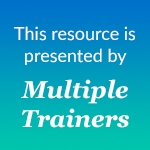

Search Results: practices
-
Join Jim Manske as he leads you through a self-connection exercise to guide you toward welcoming whatever enters into your awareness.
-
Join Jim and Jori Manske in a thought experiment exercise designed to help us become more aware of our conditioning, allowing us to make more conscious and connected choices in the face of conflict.
-
CNVC Certified Trainer Miki Kashtan helps a man whose ex-spouse reacted strongly to his attempt at empathizing with her. Miki shows us how it’s possible to hide behind our empathic expression, creating less rather than more connection. She suggests instead that we be vulnerably authentic.
-
Listen to Miki discuss two strategies for bringing NVC into the workplace in ways most likely to be well received. First Miki explains why it's best to focus more on needs than feelings in business environments. Second, she talks about unpacking needs into phrases as a way of enhancing workplace connection.
-
This self-assessment matrix is a concrete step toward naming and clarifying many skills that you may find valuable in your life. We suggest you periodically assess your skills to track your progress.
-
Join CNVC Certified Trainer and Certified Focusing Teacher Shulamit Berlevtov in this brief exercise called the Wheel of Awareness. This exercise will help you become aware of how to distinguish and differentiate your life experience.
-
Jim and Jori Manske offer insight into blame, how it arises and how do we handle being blamed and our own blame of others.
-
Celebrate love with Rodger Sorrow! Listen in as Rodger discusses a range of topics such as defining love, religion and love, and how to handle unloving responses.
-
Explore self-empathy with an exercise to connect more deeply with your needs.
-
Learn to translate judgments into self-awareness to improve listening in business.
-
Delve into the power of forgiveness with Rodger Sorrow! Listen in as Rodger explores 3 areas: asking for forgiveness, when it's hard to forgive, and forgiving ourselves.
-
CNVC Certified Trainer Anne Walton leads us through a guided visualization to help us make a shift in ideas we hold about ourselves. (Edited and Updated 10/6/2019)
-
Learn how unacknowledged fear can seem like aggression and a way to shift it.
-
This session is from the NVC Academy's 2017 Telethon. Listen in as Mary offers two experiential self-empathy exercises: I Love It When, and What Do I Want / Why Do I Want It. Deepen your ability to connect with self — novel and effective ways to engage the process of Self-Empathy!
-
Our "felt-sense" can provide crucial information about our experience and our lives. It can also help us integrate and retain information. This can also bring greater access to internal resources, choice, open heartedness, collaboration and creative solutions. From there, profound insight and transformation can follow. Here's how we can harness that...
-
When we have an inner conflict, how can we bring ourselves closer where we want to be? Miki explains about how we can deepen our self understanding in a way that can transform our own reactivity, urges, and false either/or views -- so that we can bring in more presence, choice, and options.
-
Jim and Jori discuss the root of Nonviolent Communication, needs consciousness. Participate in guided processes to deepen your own needs consciousness.
-
Emotional regulation is the consistent capacity to fully experience one’s feelings, particularly when they are intense and/or painful. Here are 36 practices that help with emotional regulation that can be done alone or with others. Read on for more.
-
When the pressure is on whether that's rushing out the door for the school run or getting them to bed on time, it's easy to leave all our best practices to one side. Luckily Nonviolent Communication gives us some useful tools to add to our metaphorical parenting tool belt and today we're sharing 6 tips to help bring out the compassionate parent in you.
-
How can Nonviolent Communication practices support us when we're feeling depressed? Taking a look at some characteristics of depression and how they're linked to unmet needs, we offer some steps to take that help you reconnect with life and others.

Quick Links
Subscription Preferences
Stay In Touch!
Looking for ways to keep up with NVC Academy news, get special offers, free resources, or words of inspiration? Here are five ways to stay engaged:

















